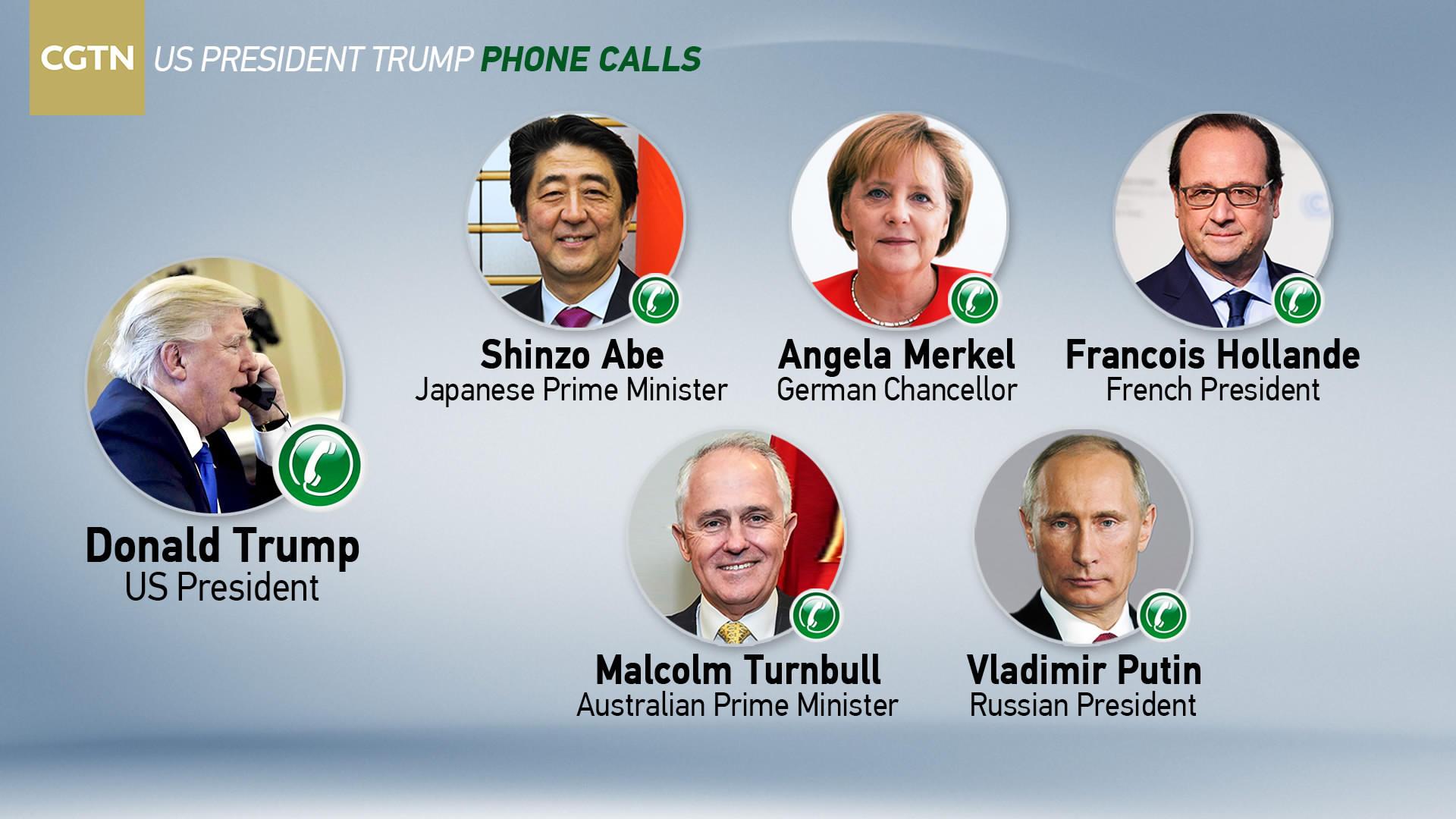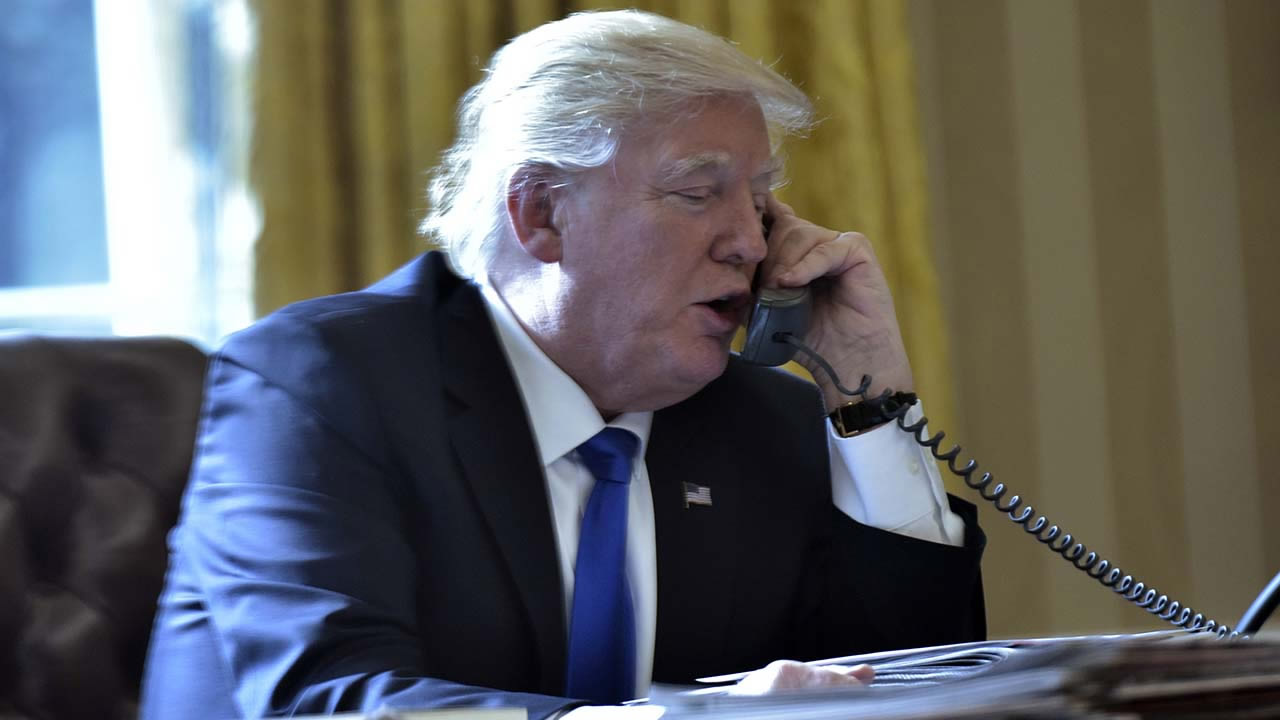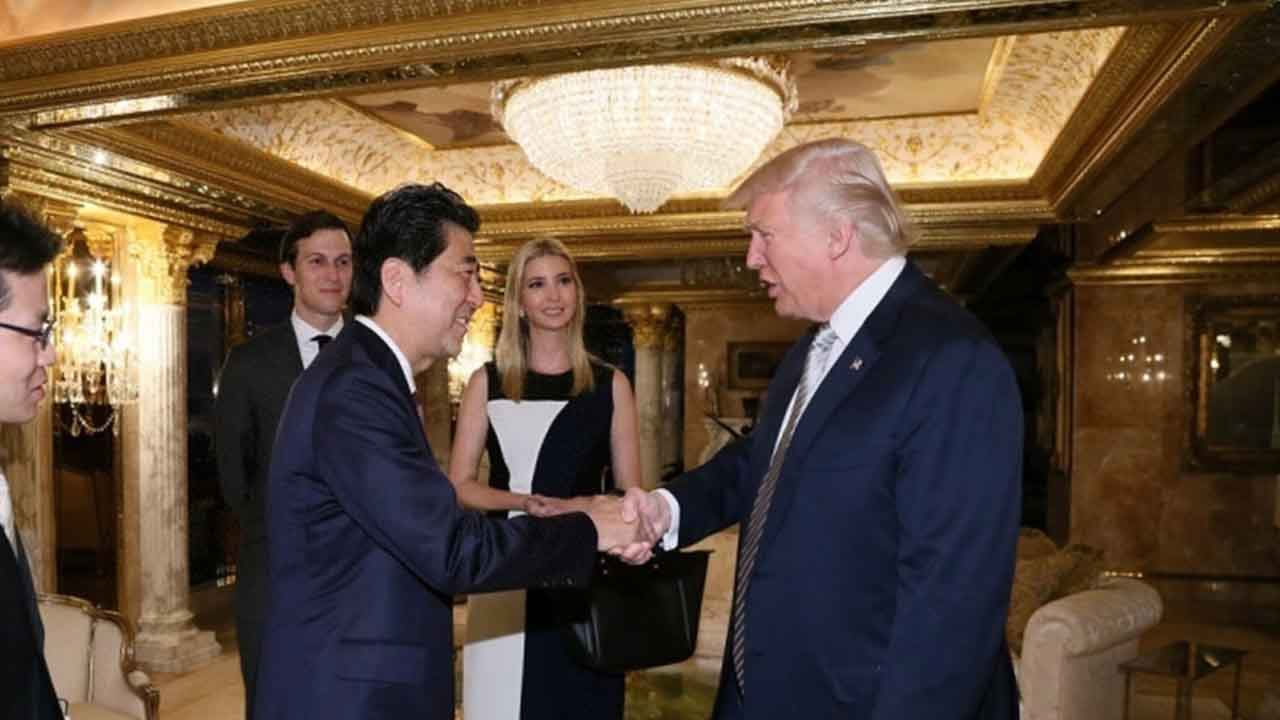US President Donald Trump Saturday talked to several world leaders by phone, amid growing international criticism and legal challenges over his sweeping executive order banning citizens from seven countries with Muslim majority and all refugees from entering the US.
In a flurry of prearranged phone calls, Trump spoke with Russian President Vladimir Putin, Japanese Prime Minister Shinzo Abe, German Chancellor Angela Merkel, French President Francois Hollande and Australian Prime Minister Malcolm Turnbull.
Trump, Putin agree to cooperate to fight against terrorism
Trump’s most anticipated conversation was with Putin, whose country is accused of meddling in the 2016 US election through cyber attacks.
Trump was noncommittal before Saturday's phone call about whether he was considering lifting the economic sanctions on Russia.
During the call, Trump and Putin discussed cooperation in fighting terrorism, especially in Syria, Iran's nuclear program, Palestinian-Israeli tensions, the Korean Peninsula and the situation in Ukraine. They also spoke of rebuilding political and bilateral trade and economic ties.
"The two sides expressed willingness to work actively together to stabilize and develop Russian-American cooperation on a constructive basis, as equals, and to mutual benefit," the Kremlin said in a statement issued after the call.
"Both President Trump and President Putin are hopeful that after today's call the two sides can move quickly to tackle terrorism and other important issues of mutual concern," the White House said.
The leaders also said they would "maintain regular personal contacts," the Kremlin added, and would work out a date to meet face-to-face.
During a call in mid-November, Putin and the then US president-elect agreed that the current ties between Russia and the United States "could not get worse" and vowed to help "stimulate a return to pragmatic, mutually beneficial cooperation."
Trump, Abe affirm importance of alliance
In a phone conversation, Trump and Abe agreed to hold their first meeting in Washington on February 10.
Abe said the two sides confirmed the importance of the Japan-US alliance and exchanged views on the economy and security.
The White House said in a statement, Trump affirmed the US’s “ironclad” commitment to ensuring the security of Japan.
They also discussed cooperation on the issue of nuclear weapons development in the Democratic People's Republic of Korea.
However, the two leaders did not get into any detailed conversations on issues such as the Trans-Pacific Partnership (TPP), from which the US withdrew after Trump took office.
Shortly after Trump's election victory, Abe held unofficial talks with him in New York in November.
Trump on Monday signed an executive order to officially withdraw the US from the TPP trade deal as part of his efforts to protect American jobs.
TPP, which Abe has backed enthusiastically, is a free trade pact between 12 Asia-Pacific countries and was formally signed by ministers from these 12 countries in last February after over five years of negotiation.
Trump, Merkel agree NATO members must pay fair share
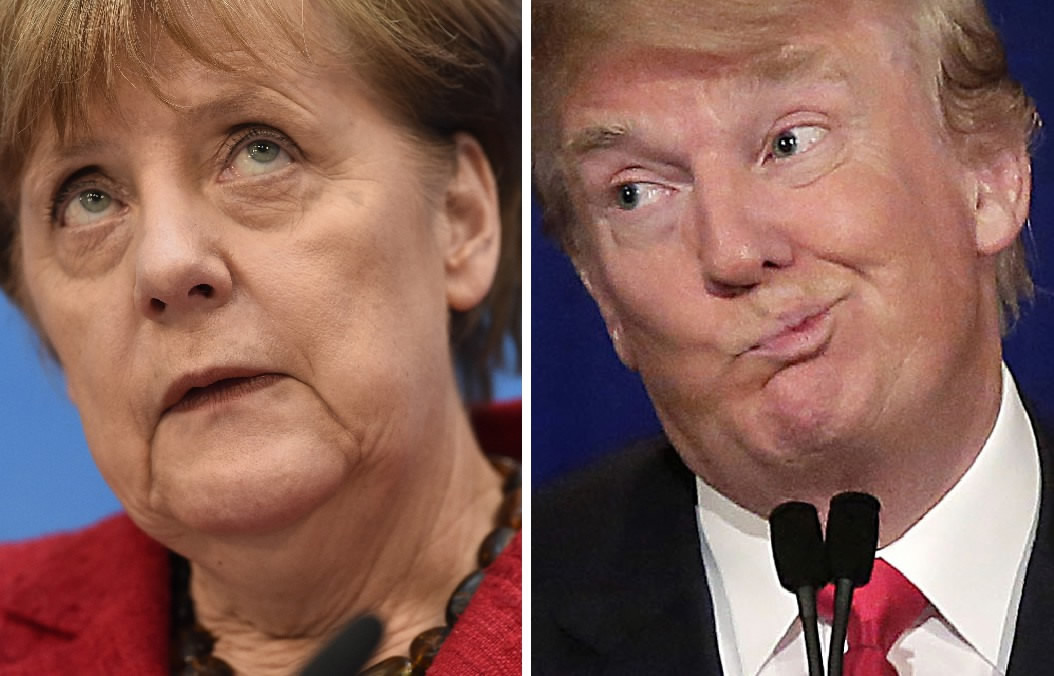
This combination of file photos created on January 16, 2017 shows then Republican US presidential candidate Donald Trump (November 10, 2015 in Milwaukee, Wisconsin) and German Chancellor Angela Merkel (L, March 14, 2016 in Berlin). /CFP Photo
This combination of file photos created on January 16, 2017 shows then Republican US presidential candidate Donald Trump (November 10, 2015 in Milwaukee, Wisconsin) and German Chancellor Angela Merkel (L, March 14, 2016 in Berlin). /CFP Photo
Merkel and Trump spoke by telephone about NATO, the situation in the Middle East and North Africa, their ties to Russia and the conflict in eastern Ukraine.
"The leaders recognized that NATO must be capable of confronting 21st century threats and that our common defense requires appropriate investment in military capabilities to ensure all allies are contributing their fair share to our collective security," Merkel and Trump said in a statement.
The statement made no mention of Trump's executive order limiting immigration or his moves to cancel free trade deals, issues that have drawn criticism from German Foreign Minister Sigmar Gabriel and other German officials in recent days.
Trump accepted Merkel's invitation to attend a summit of G20 industrialized countries in Hamburg in July, and said he looked forward to welcoming Merkel to Washington soon. Germany is chairing the G20 bloc this year.
Hollande warns Trump of protectionism
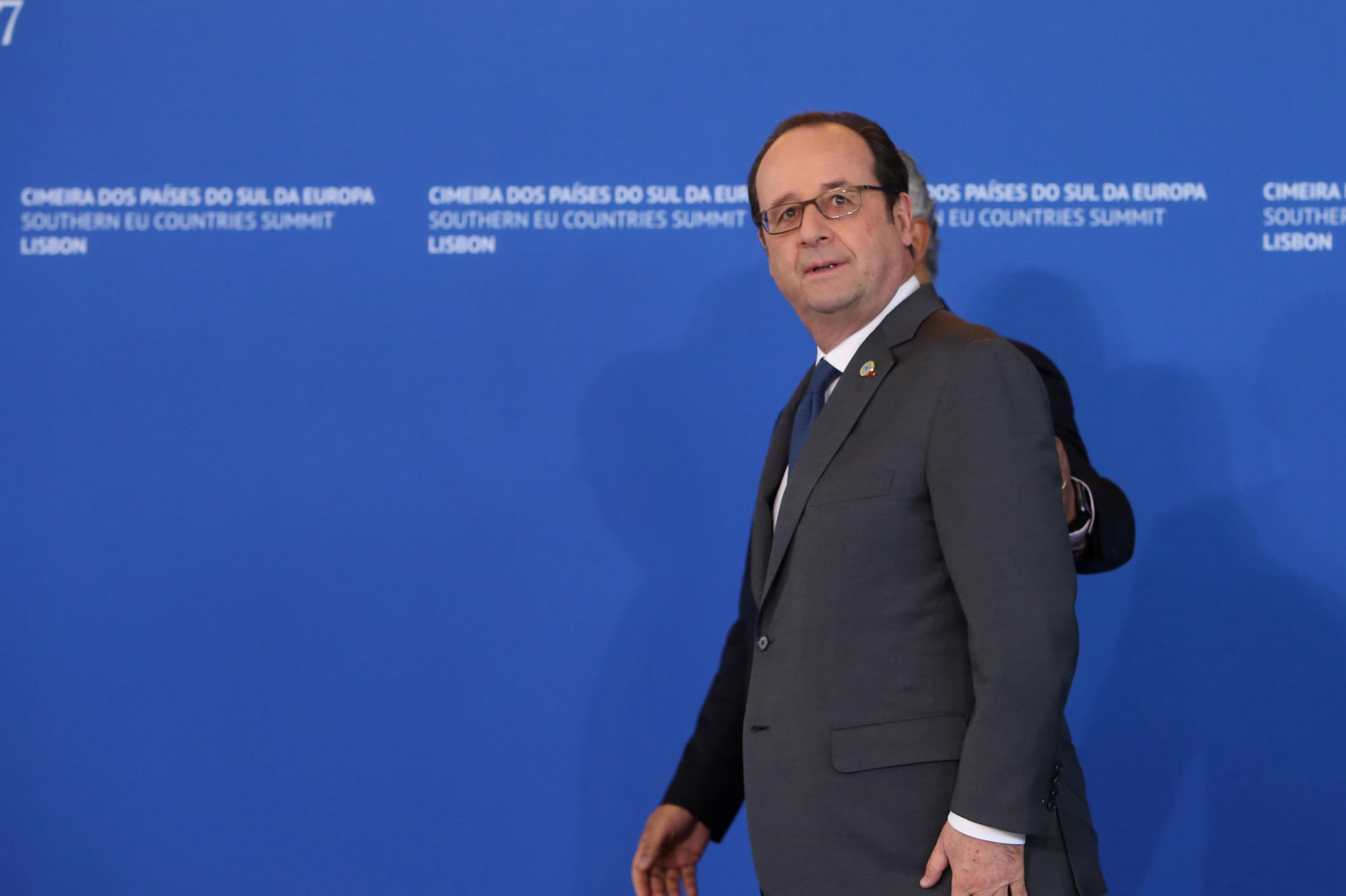
French President Francois Hollande arrives to the Southern EU Countries Summit at the Belem Cultural Center in Lisbon Portugal, on January 28, 2017. /CFP Photo
French President Francois Hollande arrives to the Southern EU Countries Summit at the Belem Cultural Center in Lisbon Portugal, on January 28, 2017. /CFP Photo
French President Francois Hollande in his first official phone conversation with Trump warned the real estate mogul-turned-politician against taking a protectionist approach, which could have economic and political consequences, a statement from the French president's office said.
"In an unstable and uncertain world, turning inward would be a dead-end," Hollande told Trump, according to the statement.
The French president told Trump, who has expressed skepticism about international organizations, that France was committed to the United Nations, that the NATO military alliance was indispensable and the European Union should be reinforced.
Earlier on Saturday, France and Germany voiced disquiet over Trump's decision to limit immigration and refugees from seven countries with Muslim majority.
Trump tells Turnbull he'll honor refugee resettlement deal
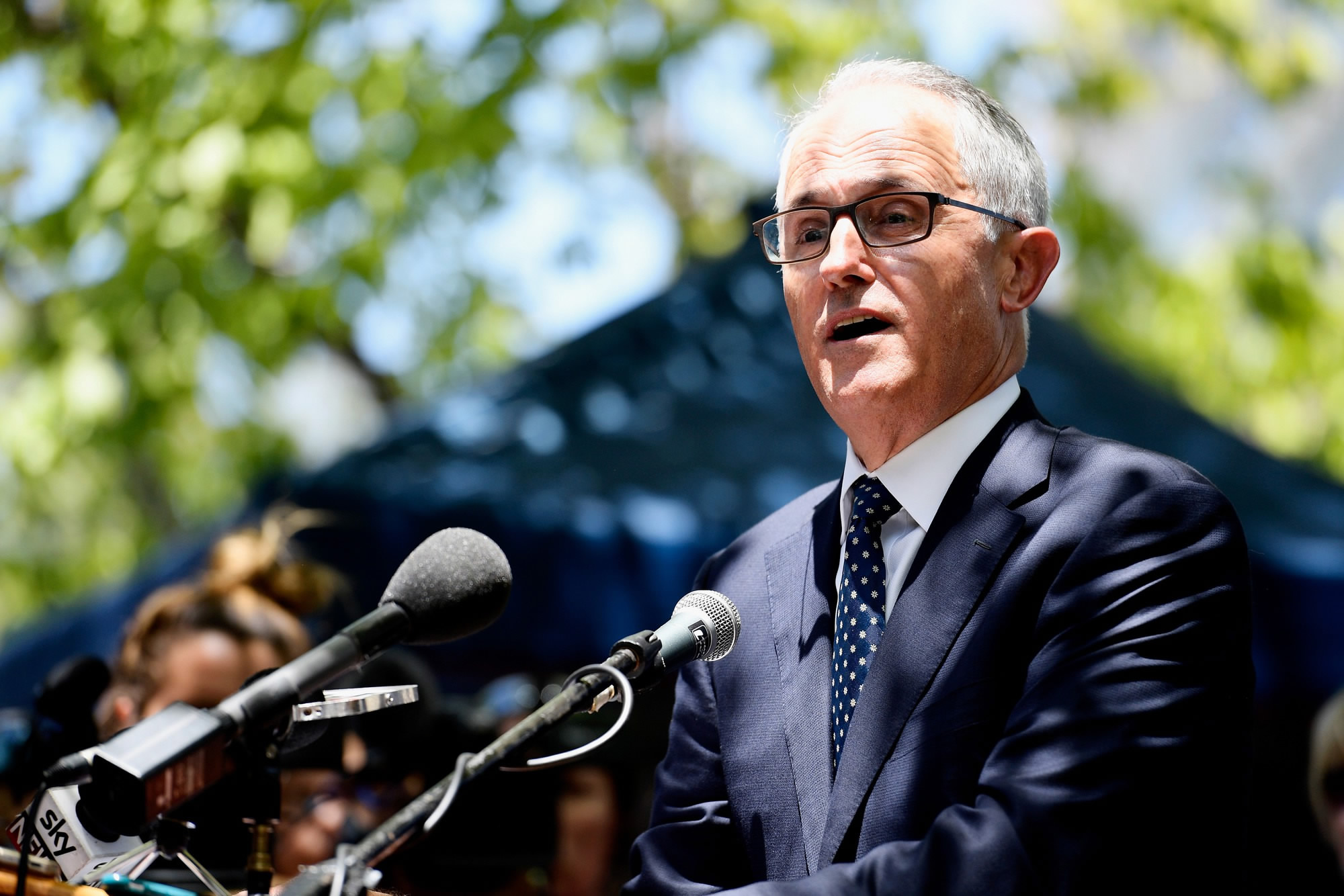
Prime Minister of Australia, Malcolm Turnbull speaks during the 40th anniversary memorial service for the Granville train disaster on January 18, 2017 in Sydney, Australia. /CFP Photo
Prime Minister of Australia, Malcolm Turnbull speaks during the 40th anniversary memorial service for the Granville train disaster on January 18, 2017 in Sydney, Australia. /CFP Photo
Trump has reportedly reassured Australian Prime Minister Malcolm Turnbull that the US will continue to honor the refugee resettlement deal with Australia.
There were concerns that Australia's deal made with the Obama administration would come unstuck following Trump’s immigration executive order Friday.
The deal will see a number of refugees held in Australian detention camps on Nauru and Manus Island swapped with refugees held in similar US camps in Costa Rica.
“Both leaders emphasized the enduring strength and closeness of the US-Australia relationship that is critical for peace, stability and prosperity in the Asia-Pacific region and globally,” the White House statement said.
“The ongoing shared objective to defeat ISIL was discussed and both leaders committed to continuing to work together to improve global instability, including in the Asia Pacific,” a spokeswoman for the prime minister said. "The leaders acknowledged a common interest in preventing irregular and illegal migration."
“The president confirmed that his administration would continue to honor the 2016 refugee resettlement arrangement agreed between the governments of Australia and the United States.”
(With input from Reuters)

